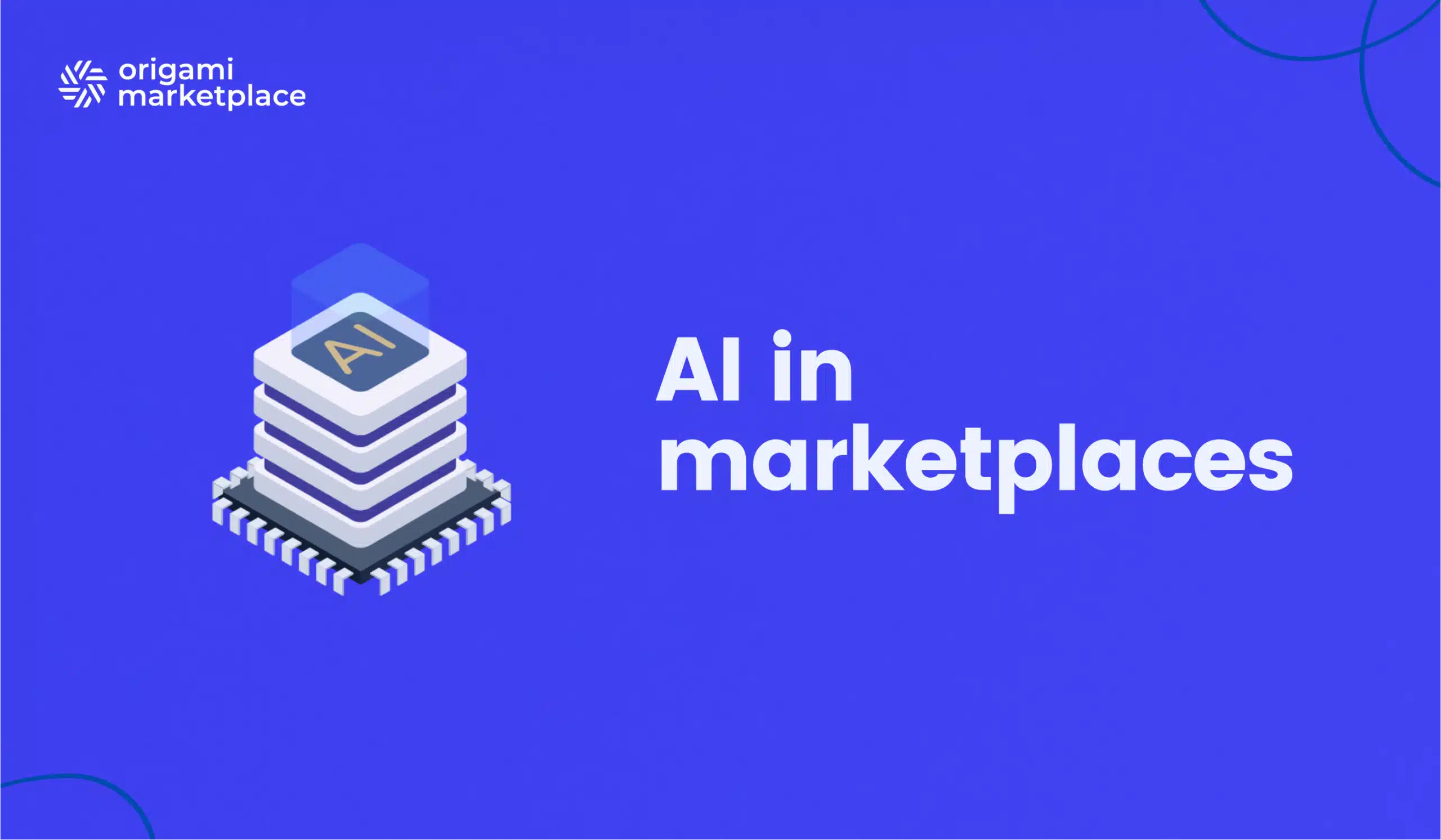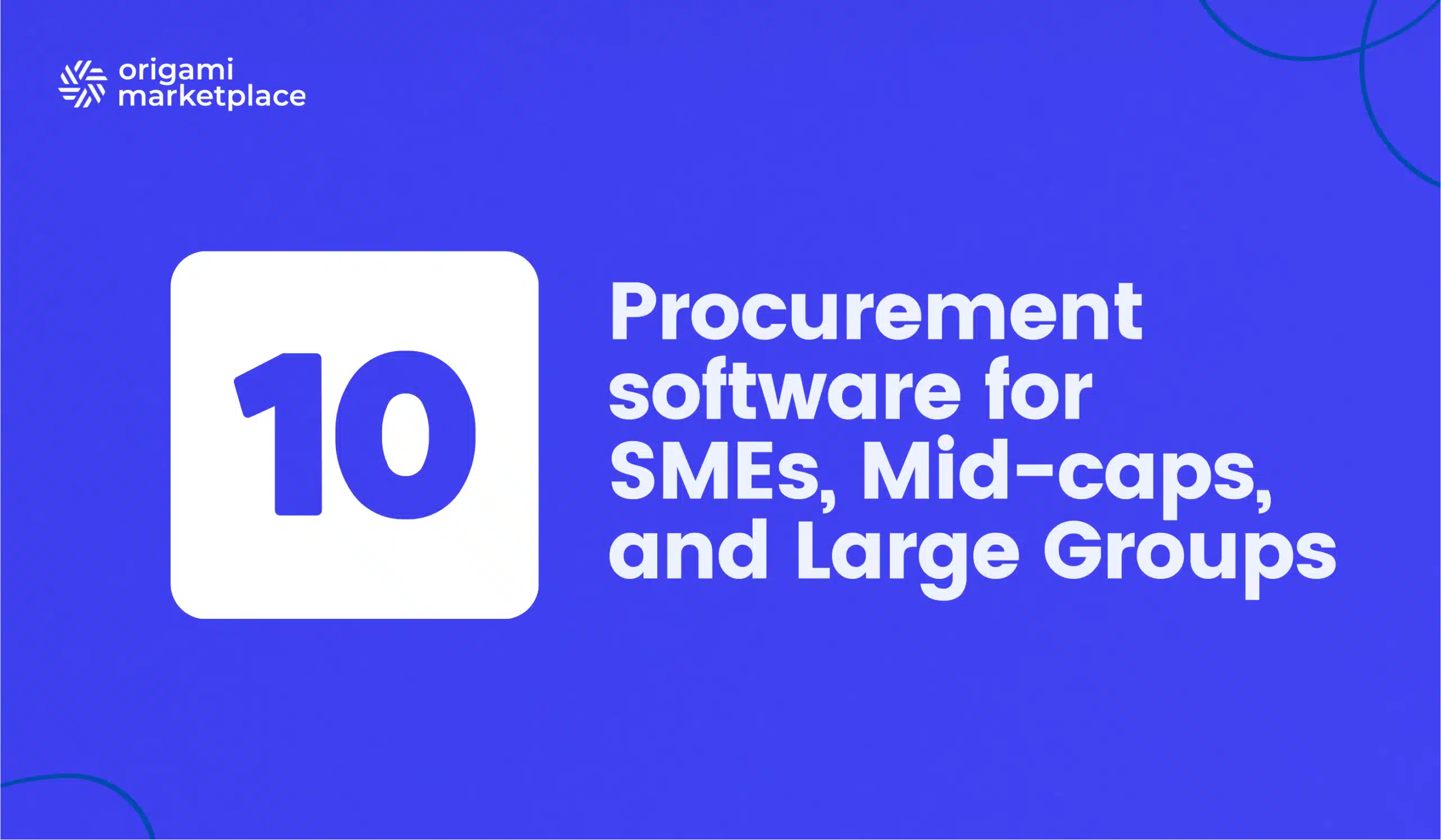AI applications in marketplaces: a complete guide to 2025
- Emeline Kerloch
- 9 minutes de lecture

Artificial intelligence will transform the way marketplaces operate in 2025. This technological revolution is redefining every aspect of the online shopping experience and creating unprecedented opportunities for the platforms that embrace it. According to recent studies, more than 75% of e-commerce platforms now incorporate AI solutions, generating an average 35% increase in conversion rates and a 40% reduction in operational costs.
From moderating content to recommending products and detecting fraudulent behaviour, AI is infiltrating every corner of marketplaces to optimise the customer experience, maximise sales and secure transactions.
This comprehensive guide aims to show you:
✅ All the concrete applications of AI for a marketplace
✅ The benefits you can reap
✅ Best practices for integrating AI without complexity.
Topics covered in the article:
- The 6 main applications of AI in marketplaces
- The uses of AI by marketplace type
- The limitations and risks of AI applied to marketplaces
- The future of AI in marketplaces
The 6 main applications of AI in marketplaces
1. AI and personalising the customer experience.
When you visit major marketplaces, have you noticed that the products displayed often seem to match your interests? It’s no coincidence! AI analyses your previous purchases, what you’ve looked at and even how much time you’ve spent with some products.
AI-powered personalisation represents a paradigm shift in e-commerce. Unlike traditional systems based on predefined rules, today’s algorithms analyse thousands of data points in real time to create a truly personalised experience.
Amazon, a pioneer in this field, now derives over 35% of its sales from its recommendation system. Alibaba is taking this logic even further with its ‘Fashion AI’, which understands users’ style preferences and recommends fully coordinated outfits.
Marketplaces using these technologies report an average 30% increase in conversion rates and a 20% increase in the average basket value.
2. AI in product search and discovery.
Have you ever seen a piece of furniture in a magazine that you loved but didn’t know how to describe it? Now you can quickly snap a photo with your phone and upload it to sites like ASOS or Wayfair. The AI will recognise the item and show you similar products available for purchase. These technologies increase time spent on the platforms by 30% and the average order value by 25%.
You can also speak into your phone and say ‘I’m looking for a warm jacket for winter’ and the AI will understand what you want, even if you don’t use technical terms like “insulated parka”.
AI-powered search algorithms now understand user intent thanks to advanced natural language processing. Voice search now accounts for 40% of searches on e-commerce platforms.
3. Automate and optimise operations using AI
Automated inventory management now analyses hundreds of variables to accurately predict future demand. Amazon uses predictive algorithms to anticipate orders before they are placed, reducing delivery times by 18% and logistics costs by 10%.
Dynamic pricing adjusts prices in real time based on multiple factors. Walmart analyses more than 2.5 million data points per minute to optimise its prices, increasing margins by 11%.
Ready to turn your B2B, B2C or C2C marketplace idea into reality?
Download our marketplace specifications template 🗒
Download our RFP template 📒
4. AI streamlines product upload
One of the most useful applications of artificial intelligence is to simplify product listings, whether for professionals or individuals. In a professional context (B2B and B2C), AI is revolutionising the creation of product listings by automatically generating detailed SEO-optimised descriptions from simple technical specifications, reducing the time needed to create a product listing from 30 minutes to less than 5 minutes.
For individuals selling on C2C platforms such as Gumtree or Vinted, AI makes the process much easier. Take a photo of the item you want to sell and AI automatically identifies the type of product, suggests a relevant title, fills in the characteristics (size, brand, material for clothing), suggests a price range based on similar items, and can even automatically improve the quality of your photos or remove the background for a more professional presentation. Facebook Marketplace uses this technology to enable sellers to create a complete listing in less than a minute, increasing the number of completed listings by 45%.
5. AI in marketing and customer acquisition
Machine learning algorithms identified more than 500 consumer micro-segments at Alibaba, enabling highly targeted marketing communications that increased conversion rates by 38%.
Criteo developed an AI retargeting engine that analyses more than 120 variables per user to create highly personalised experiences, improving campaign effectiveness by 43%.
6. AI-powered customer service and support
Advanced chatbots now handle 70% of customer queries without human intervention, with a satisfaction rate of 92%. At Zalando, sentiment analysis automatically identifies dissatisfied customers, improving first contact resolution by 25%.
Amazon has developed an automated resolution system that handles more than 85% of returns requests without human intervention, reducing handling time from 24 hours to less than 5 minutes.
The uses of AI by marketplace type
| AI functionality | B2C | B2B | C2C |
|---|---|---|---|
| Tailored recommendations | ✅ Based on purchase and Browse history | ✅ Based on supply needs | ✅ Highlight ads based on user preferences |
| Intelligent search engine | ✅ Product search | ✅ Search for suppliers, technical products | ✅ Search for ads by photo or simple criteria |
| Dynamic and automated pricing | ✅ Based on demand and seasonality | ✅ Optimise price lists and negotiations | ✅ Automatic estimation of product value |
| Automatic moderation of content and ads | ✅ Text, images, videos, customer reviews | ✅ Validation of supplier documents | ✅ Detection of fraudulent or non-compliant ads |
| Detection of fraud and suspicious behaviour | ✅ Behavioural scoring and monitoring | ✅ Security of business-to-business transactions | ✅ Prevention of person-to-person fraud |
| Automate seller onboarding process | ✅ KYC checks, catalogue integration | ✅ Legal document checks, supplier listing | ✅ Simplified identity verification |
| Predictive demand analysis | ✅ Inventory management, sales forecasting | ✅ Sourcing and purchasing optimisation | ❌ Not a priority |
| Intelligent matching of supply and demand | ✅ Product feed customisation | ✅ Automated supplier/buyer connection | ✅ Highlighting of most relevant listings |
| Marketing campaign automation | ✅ Personalised emails and notifications | ✅ Targeted B2B follow-ups | ✅ Notifications of new listings that match searches |
| Analyse customer reviews and sentiment | ✅ Identify friction points | ✅ Improve supplier/buyer relationships | ✅ Evaluate the quality of the exchange experience |
| Source-to-pay process management | ❌ N/A | ✅ End-to-end automation (sourcing, ordering, payment) | ❌ N/A |
The limitations and risks of AI applied to marketplaces
Download our free case study
The future of AI in marketplaces
For marketplace operators, AI represents a strategic revolution that will radically redefine their business model in the coming years.
Beyond current incremental improvements, leading platforms are already developing self-optimising ecosystems where AI will orchestrate all operations. These systems will enable a dramatic reduction in operating costs (estimated at 60% by 2028), while increasing the value generated by each seller and buyer.
Operators will be able to deploy “digital twins” of their entire marketplace, simulating millions of scenarios to identify structural optimisations before they are even implemented.
Seller management will be transformed by automated onboarding systems that reduce integration time by 90%, while dynamic balancing algorithms will ensure optimal distribution of visibility between new and established sellers.
Operators who master these technologies will be able to offer more sophisticated pricing models based on actual value generated rather than fixed commissions, creating perfect alignment between their interests and those of their ecosystem. Competitive differentiation will no longer come from the size of the catalogue or the number of sellers, but from the quality of algorithmic orchestration and the ability to create unique experiences that cannot be replicated.
Platforms that invest in these advanced AI capabilities now will create a structural competitive advantage that will be extremely difficult for latecomers to catch up with.Download our free case studyDiscover how Origami Marketplace and Green Musicians have reimagined online listings using artificial intelligence to create a simple, fast and user-friendly second-hand shopping experience.
Conclusion
AI has radically transformed marketplaces, creating new opportunities for growth and innovation. The platforms that will succeed are those that not only adopt these advanced technologies, but also integrate them in an ethical and user-centric way.
To remain competitive, marketplaces must take an incremental approach to AI integration, invest in data quality, develop hybrid skills and keep people at the heart of their strategy. AI is not just a technological tool, but a catalyst for change that is redefining the nature of e-commerce.
📌 Summary: AI applications in marketplaces in 2025.
🧠 Artificial intelligence will transform marketplaces in 2025.
- 75% of e-commerce platforms use AI, with a 35% increase in conversion rates and a 40% reduction in operating costs.
🔍 6 key application areas for AI
- Personalised customer experience: accurate recommendations → 30% increase in conversions for leaders such as Amazon.
- Intelligent and visual search: voice and image search → 25% increase in average order value.
- Operational automation: inventory forecasting, dynamic pricing → 18% reduction in delivery times.
- Simplified online publishing: AI generates product sheets and ads → creation time reduced by a factor of 6.
- Targeted marketing: AI hyper-segmentation and retargeting → up to 43% increase in advertising efficiency.
- Automated customer support: chatbots, dissatisfaction detection → faster and more satisfying resolution.
🧩Differences according to marketplace model (B2C, B2B, C2C)
All models benefit from AI, but with different priorities:
- B2C: personalisation, dynamic pricing
- B2B: intelligent sourcing, automation of source-to-pay
- C2C: easy publishing, automated moderation
⚠️ Limitations and risks to be aware of
- Ethical issues: data protection, transparency of algorithms
- Solutions: anonymised data, bias audits, regulatory frameworks (e.g. GDPR)
🚀 The future: AI self-optimised marketplaces
Goal: 60% cost reduction, ultra-fast onboarding, fair distribution of visibility. Competitive advantage will no longer come from the catalogue, but from the quality of the algorithms.
✅ Key takeaways AI is not just a technology: it is the key strategic lever for transforming marketplaces in a sustainable way. The winning platforms will be those that know how to integrate it in an intelligent, ethical and user-centric way.👉 Ready to take the next step? Discover how our marketplace solution can help you launch your artificial intelligence platform today.



